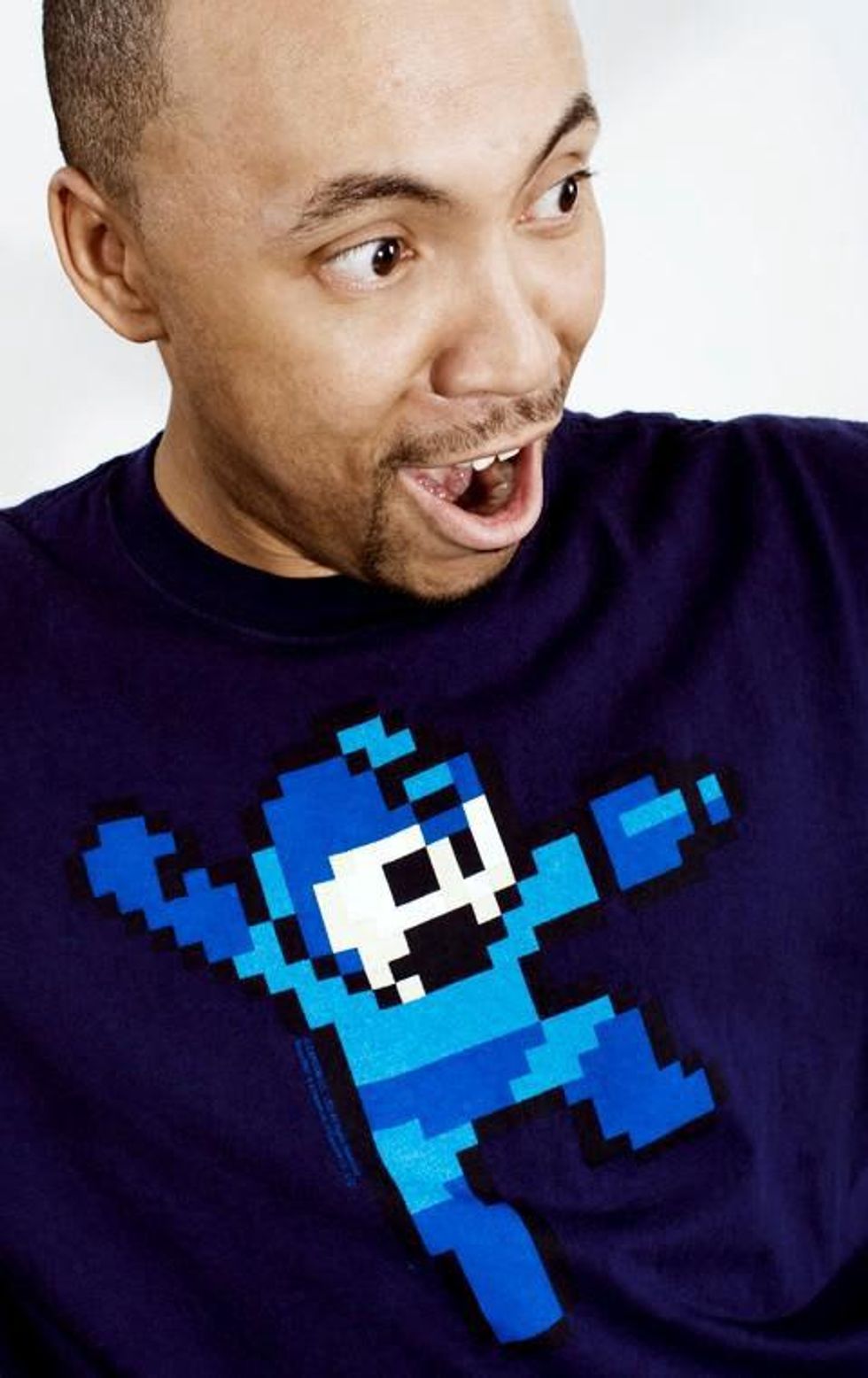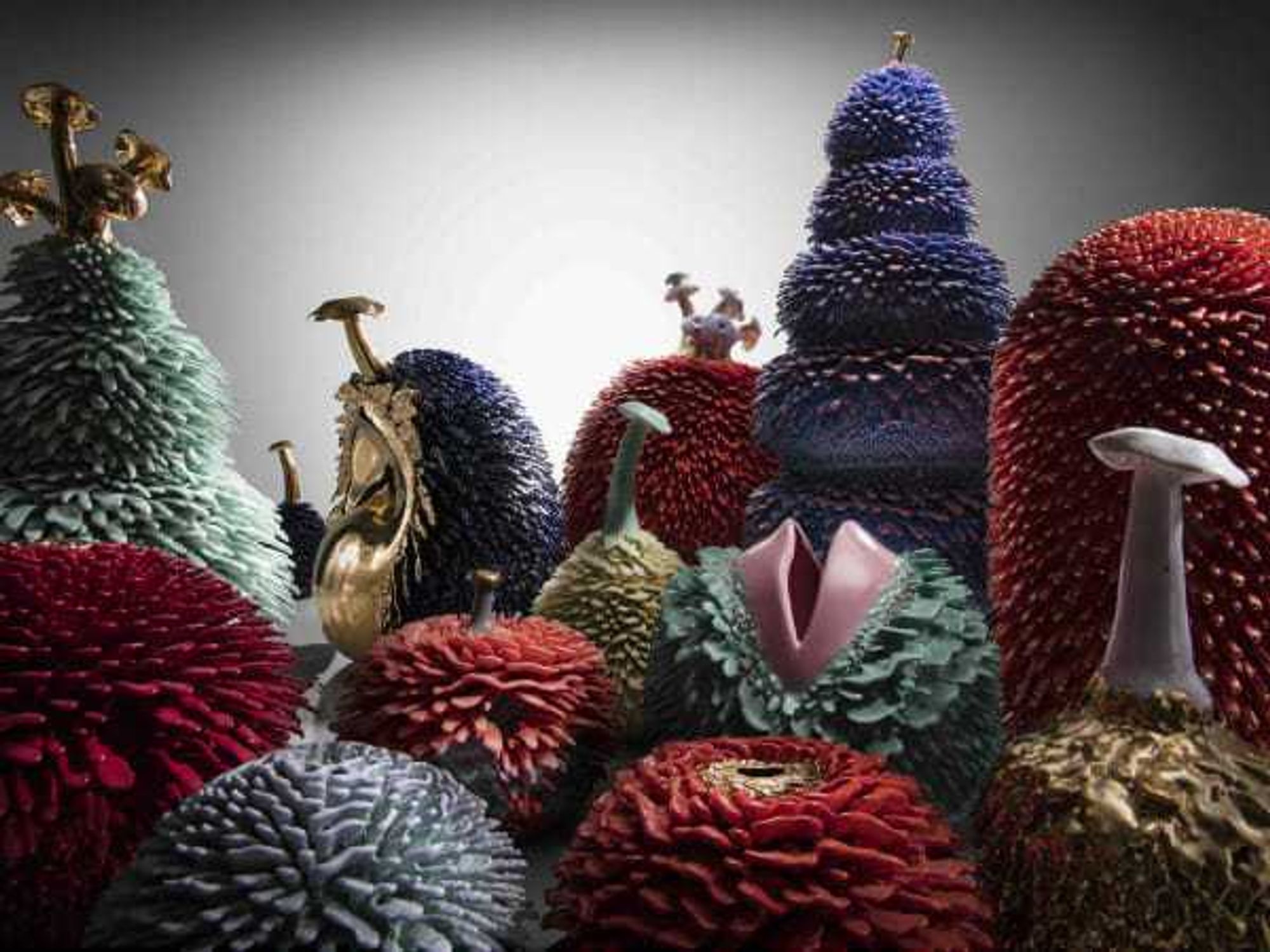The People's Poetry
Dropping nukes on 'Planet Texas': Straight from the mouths of the Austin Poetry Slam
You better believe that the Austin Poetry Slam is looking to have a big 2012.
Just this Tuesday, local poet Lacey Roop qualified to represent Austin in the Women of the World Poetry Slam held in Denver this March. And last year's local champ, Kevin Burke, qualified last month for the first slot in Austin's own Grand Slam.
After that previous string of success, thanks in large part to new Slam Master Danny Strack at the helm, there's no telling how big or how far the Austin Poetry Slam will go.
CultureMap sat down with several APS regulars and the devoted organizers who make the whole thing tick. First up: Da'Shade Moonbeam, veteran slam poet with several Austin Grand Champion titles; the previously mentioned Lacey Roop and Danny Strack; DJ Digg, APS' rhythm section and local turn tablist; and Keith Ruckus, Vice Slam Master with a one-person show at this month's Frontera Fest Short Fringe.
With all these great poets in the room, we talked about performing in arguably the largest weekly slam poetry event in the nation to talk about the ins and outs of competitive poetics.
CultureMap: How many poets would you say you have showing up for the slam.
Keith Ruckus: I'd say we have a regular rotation of around twenty-five poets.
Lacey Roop: And that doesn't mean they all read. Twenty-five people might be on the list, but we only take about ten to twelve.
KR: And then it rotates. Some people may show up for just a couple weeks and then stop for a month and then come back.
LR: And our audience at the APS is one of the largest weekly attending audiences in the whole country.
CM: You mean for the whole national slam scene?
LR: Oh yeah, by far. I've toured all over from New York to California.
KR: New York is bigger than us. But we're bigger than Berkeley.
LR: Yeah we're definitely in the top three weekly slams attended in the country. And we always get enough money from the weekly door sales and fundraisers to be able to support our team and our community. Because it's not just for the five people that make the poetry team, it’s for helping the community as a whole. Like Danny, Da'Shade and I have done different things in schools and at at-risk shelters, teaching workshops. Our community doesn't just exist at the Art Authority on Tuesday nights,; it's all year round, it's whatever we can do.
Danny Strack: You have to have a great event every week or you wouldn't have a community. And you need those people to help you run the show and take a sense of ownership.
CM: How does that community support translate into the national competition?
LR: I've been to nationals [the Poetry Slam, Inc. National Poetry Slam] twice. But just in the two years that I've gone, it's so funny to see people like “Oh, you’re with Austin!” and they get all scared because Austin just has such a...
KR: Reputation.
LR: Yeah, renown, stature, for always having new talent, interesting talent, new people on the team, and always having new work. And that's what I love. I like the eclecticism of what the Austin writing community brings. It’s never the same style poems, never the same kind of thing. We have stuff that sometimes goes on the funny side of things, or more serious, more personal, not just all loud oppression poems or indignant upon anything.
KR: Mine are! (Everyone laughs.) But that also helps your learning curve, to have a scene where you have so many powerful performers and our talent pool is enormous.
LR: Huge.
KR: Wherever you do something new in an art form, you're taking what you can from other people. Whereas if you have a smaller slam, where your audience is twenty to thirty people and there's only four poets competing, you tend to just emulate each other.
DJ Digg: You only have a couple inputs.
KR: But here we have this constant rotating group of poets and it's forced evolution in your art form. The competition is a big part of that.
DS: As far as strategy goes, Da'Shade is probably the most hardcore strategist I've ever met.
KR: [Laughs]
DJD: Yup.
CM: So what goes into strategizing in slam? Is it image? Character?
KR: Performance.
Da'Shade Moonbeam: In my opinion...
DJD: Oh, you're gonna get a good answer right here..!
DM: My opinion is: if you factor in all the things you just mentioned you are setting yourself up for failure. Because we are on Planet Texas right here. We are the capitol city of Planet Texas. If you fly your space ship to the planet of Dallas or whatever, it's a different mentality. You know Dallas, shit, a Coke costs 13 dollars there, okay. They get on stage in Prada and spit poetry about how they didn't have any money. But it's like, us looking like we’re this rag tag bunch. You go anywhere outside of Planet Texas, it's not gonna work out in your favor. So my strategy is you prepare for war.
KR: Right.
DM: Everything you throw on that stage is a nuke or something that will cause mass devastation. Because no matter how strategic you are, if someone drops a nuke there is no strategy against it.
CM: What's a nuke sound like, what's that look like?
DM: A nuke is like, the end all, where there is no way to argue with anything: there's no way to argue with the content, no way to argue with the way it was presented.
DJD: Infallible.
DM: And then you have the performance as an addition or an accessory to what you're trying to say. And I do strategy, but my strategy is, ‘OK this is New York, they're gonna be dropping' nukes, so I have to let my nukes go first. You set the tone, you make it hard, you make it damn near impossible for the person after you to follow you. And you make the person before you regret that they did what they just did. Because when they come back up, they'll be thinking about that.
CM: That sounds very Machiavellian.
DM: I've talked to enough people, been to enough national slams to know that people are researching you, just based on your reputation. They're YouTube-ing you, everything that you've done, looking at everything that you have.
LR: But the thing is: if you have a solid poem, there's not much they can do.
DM: Nothing.
LR: The poetry has to be the backbone. Everything else is the arm, the fingernail. If you don't have a backbone, you don't have a chance.
---
February is packed full of new features at the Austin Poetry Slam. Visiting poet Fluent from Houston's youth slam scene features on Feb. 7. Ebony Stewart, National Poetry Slam finalist, is in town on Valentine's Day. And Lauren Zuniga, founder of the Oklahoma City Slam, takes the mic on Feb. 21. All shows start at 8 p.m. at the 29th Street Ballroom.

